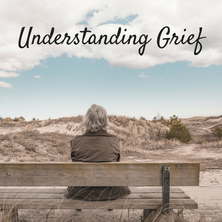
4 Reasons to Preplan:
- You can take more time to decide what you want
- You get to make the choice on how you want to be remembered
- It takes the burden off your family and friends
- It gives you the choice of pre-paying
Can you answer these questions?
- Do you know where to start when it comes to making arrangements for your last wishes and what your preferences?
- Do you know what is necessary and what isn’t when it comes to final arrangements?
- Did you know that most funeral homes are owned by large, for profit corporations?
- Do you have the important documents organized and accessible that your loved ones will need if you become incapacitated or die unexpectedly?
If you want to know the answers to these questions and how to get started
We have a helpful and free helpful E-Planning Guide
This guide is from a local business, Cochrane and Wagemann Funeral Directors
The guide will walk you through the Preplanning Process and includes helpful checklists along with forms for vital information.
Consider a family owned community focused funeral establishment an individualized and meaningful tribute to you and your loved ones.
For more information on Estate Planning and Trusts, contact The Law Offices of Colleen J. Watters











 RSS Feed
RSS Feed